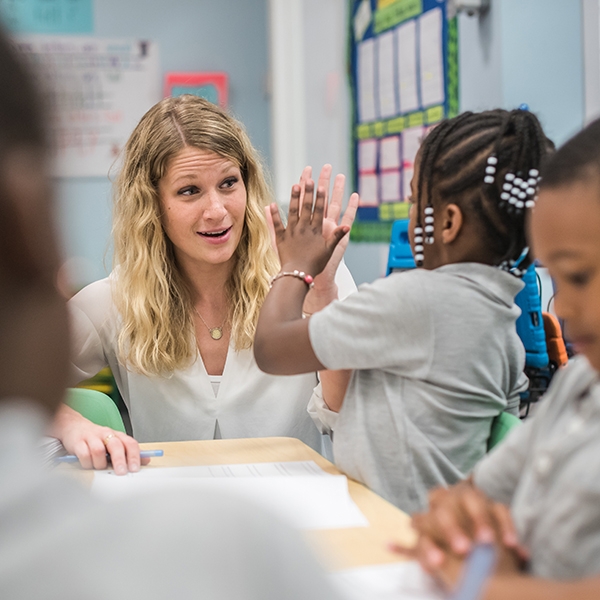
Do you think about failure as a way to look at how to transform education? The last two years have enhanced my abilities to do just that! I credit the state and national innovative leadership networks that I belong to for opening my eyes to look at failure in the same way I look at success in helping me solve complex problems. My district, Natick Public Schools, leverages educational networks to help advance, scale, and transform teaching and learning. One important school network that advances my work is The Learning Accelerator’s Innovation Directors Network (IDN), which has provided me with a national lens to draw from to scale personalized learning.
The most surprising thing I have learned from innovation networks is that sharing our individual failures and talking about what we do after failure is part of the journey we are all on as leaders transforming education systems. I understand now that transformation is not working on initiative after initiative, but a strategic, long-term process of bringing people along and iterating on ideas and models until they work for the community and become part of the culture.
This idea of sharing failures, however, was something that I personally was not comfortable with in the beginning. I just never did that in my district or with my colleagues. Mostly, we talked about our successes and what worked for us. It was surprising to me that during network convenings, we were frequently asked to talk about failure. In fact, TLA’s IDN has deliberate time set aside for members to tell their “story of learning” as a way for us to get to know each other, and often, the stories are of failure and the iteration that follows. At first, I did not understand why we would want to spend time sharing our failures. I don’t believe many school leaders are comfortable talking about failure – at least that has been my experience in Massachusetts. But what I found is that when we discuss our failures to our “tribe” of like-minded educators, it can be empowering and can lead to new ideas and solutions.
One such story of learning that taught me much about failure leading to transformation came from a school in Denver, Colorado. This K-2 school was newly formed and had implemented a very progressive, personalized educational model that allowed students to have a lot of choice in what they did in school daily. There were no classrooms, per se, just very large rooms, and students had different schedules every day where they chose what they would be doing. The school leaders had spent a lot of time planning this new, innovative school model and were very proud of it. After the first year, they found that the model worked well for about 75% of their students. The other 25% struggled, and a percentage of these students were failing school. What they already knew was that the students who were struggling experienced much trauma in their lives. The school was built in what was once a gang war zone, and many students had relatives who were incarcerated or had died. The school leaders realized that they had to change their model to support their most vulnerable students. One of the basic changes school leaders made was to implement a less flexible schedule. Students who have experienced trauma need to feel safe and knowing their daily classroom schedule was part of the solution to support all of their learners. School leadership learned many lessons by evaluating their current program, looking at the data for what was not working, and listening to their own teachers, families, and students. Today, this trauma-informed school is a model for others around the country.
We are experimenting with many different pedagogical models in my district, including online learning, blended learning, experiential learning, and social-emotional learning. What really matters is how you combine and scale these various models to create what’s right for your school community. Understanding different models from around the country and talking with leaders about how their schools got to where they are is very powerful. Talking about what is not working is as important as talking about what does work. It’s only through this process that you can learn to pivot and change in an informed way and with much more confidence than before.

